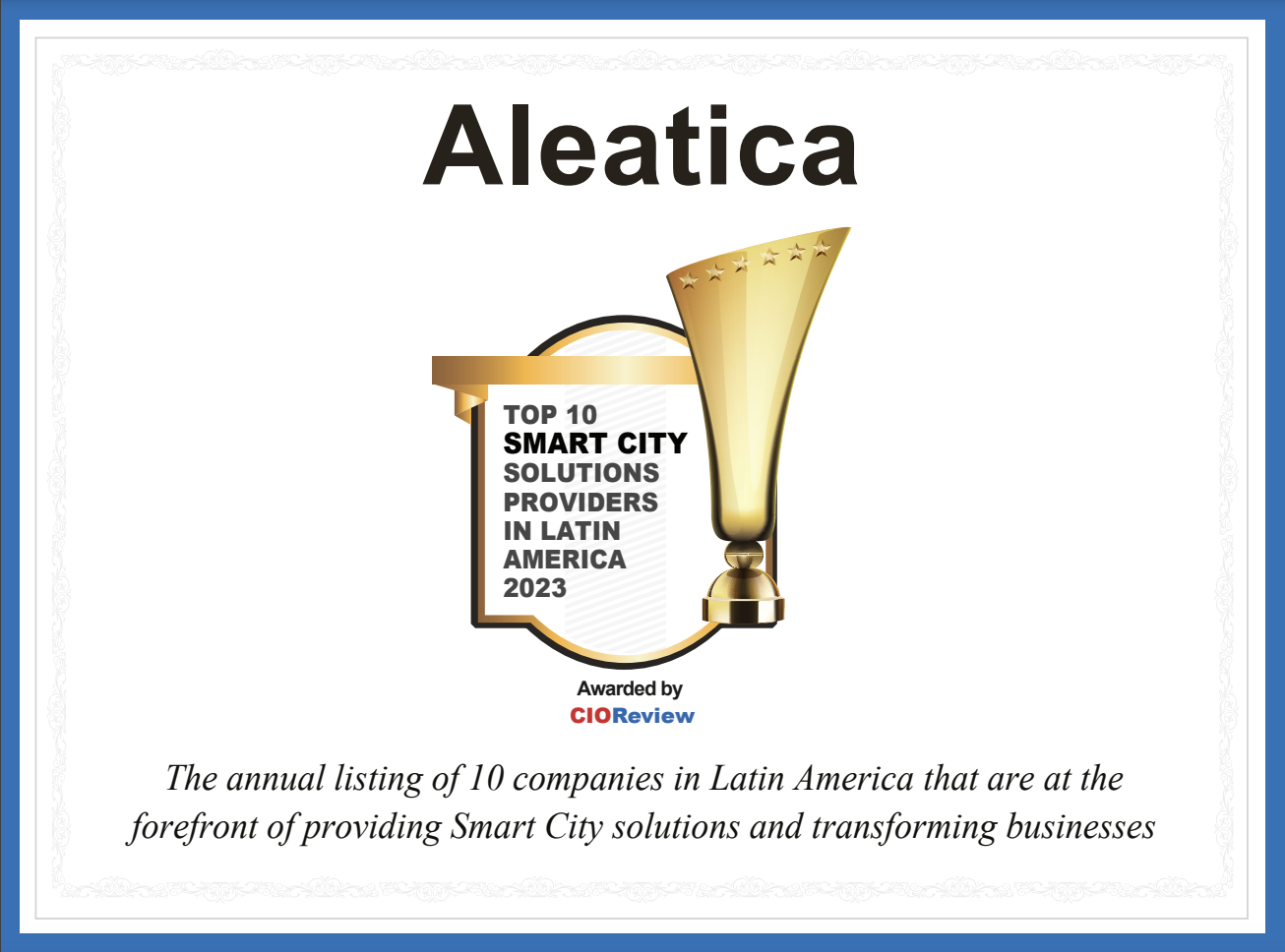Smart, safe, and sustainable mobility is fundamental to enhancing the quality of urban living. The integration of advanced technologies is pivotal to optimizing a city’s infrastructure and shared spaces, but it must always be implemented through the lens of people’s needs; according to CIO Review.
Aleatica is at the forefront of smart mobility solutions
As a pure transportation infrastructure operator, Aleatica develops and operates smart solutions that contribute to sustainable development. Our objective is clear: Meet the needs of our roadway passengers, employees, and the communities where we operate.
Under the stewardship of its controlling shareholder, IFM Investors, an Australian investment fund specializing in infrastructure, Aleatica has an impressive portfolio of 20 concessions that include highways, ports, light rail lines, and airports in seven countries. As such, Aleatica has emerged as a leading infrastructure operator, spearheading intelligent urban mobility initiatives across Latin America and Europe.
At the core of Aleatica’s operational ethos are five pillars: safety, sustainability, excellence in service, corporate integrity, and a passion for their team. These principles permeate our corporate culture, evidenced by our commitment to putting environmental, social, and governance (ESG) issues at the core of our business strategy, which is guided by a committee focused on these issues within our board of directors.
Safety serves as the cornerstone of Aleatica’s operations and is a factor we consider part of the ‘S’ in ESG. Our company is aligned with the United Nations’ Sustainable Development Goals (SDGs) and the Second Decade for Road Safety 2021- 2030. As such, Aleatica has set an ambitious target to reduce road fatalities by 50% by 2030 on the roads it operates. To achieve this, the company has allocated a substantial global investment of $134 million euros for the period of 2020-2024.
Central to Aleatica’s Road Safety Strategy is the implementation of the Accident Reduction Program (PRA), which focuses on managing the three critical risk factors associated with road transportation: infrastructure, driver behavior, and vehicle conditions. Through these efforts, Aleatica not only demonstrates its steadfast dedication to road safety but also plays a pivotal role in shaping a safer and more secure transportation landscape.
“Our contribution to the development of smart cities relies on our core value of promoting safe, smart, and sustainable mobility,” says Ricardo Lobo, Head of R&D Department at Aleatica.
Beyond operational practices, Aleatica’s sustainability commitments extend to community engagement initiatives. The Río Magdalena Highway project in Colombia exemplifies the company’s promotion of women’s entrepreneurship, which focuses on local production.

Customer-Centric solutions
Aleatica believes that investing in mobility that is smart is much more than installing digital interfaces in traditional infrastructure but rather involves using technology and data to contribute to a better quality of life.
Aleatica customer-centered solutions are tailored to create a dynamic environment that provides effective responses to people’s needs.
“At Aleatica we understand that innovation plays an important role in the evolution of our ESG commitments and actions. It is this commitment to innovation that distinguishes us as main players in the field of smart cities,” added Lobo. In this sense, part of Aleatica’s success is its dedication to employing data-driven customer experience strategies, customer profiles, prototypes, and customer journey maps to tailor its programs and decisions to the specific needs of communities.
An example of this is the use of the Big Data platform (B-Mob) as part of Aleatica Labs (Aleatica’s technological development & innovation unit) to analyze mobility patterns.
This mobility platform is supported by a team of experts in each region, ensuring the efficient operation of assets in multiple countries. This data-driven approach provides valuable insights from cities, facilitating improved operations and superior service during peak hours, eliminating road congestion.
For example, on urban highways in Mexico, this technology enables an express lane to meet the high morning demand and improve the return home in the afternoon through variable and adaptive signaling to traffic conditions. It also collaborates with large platforms such as Waze and Google for real-time mobility information to make operational decisions in real-time. All of this means families can spend more time together, reducing the stress of the commute.
Aleatica, Leading the Mobility Sector
With a substantial infrastructure footprint, managing nearly 1,154 kilometers of urban and interstate highways, Aleatica has a staggering 366 million vehicles traverse its roads annually, underscoring the scale of its operations. With technology as an ally to optimize a city’s infrastructure performance in line with people’s needs, Aleatica actively strives to bring a positive change in urban mobility.
Original article published at CIO Review